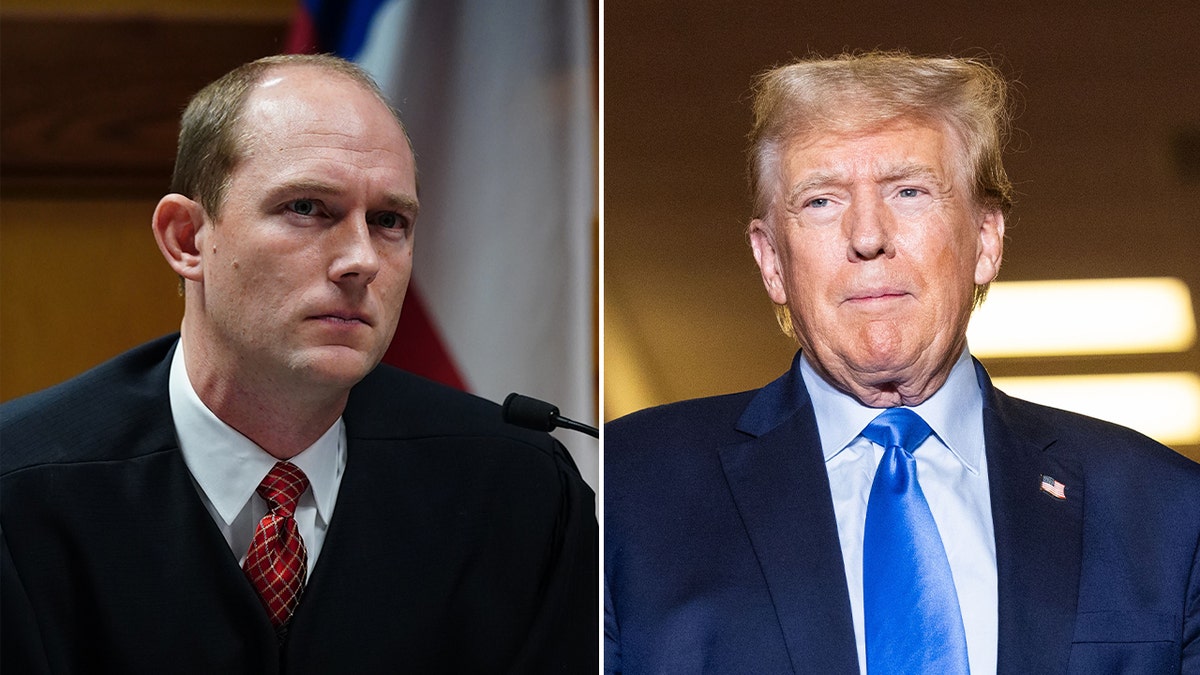- Donald Trump claimed in a Fox News interview that he had "every right" to interfere in the 2020 presidential election. (cnn.com)
- Trump faces multiple federal and state charges related to his alleged attempts to overturn the 2020 election results, including conspiracy to defraud the U.S. and conspiracy to obstruct an official proceeding. (newsweek.com)
- Trump argues his actions were official acts as president, but prosecutors contend he was acting as a private citizen when attempting to overturn the election. (people.com)
- Trump's comments have sparked widespread criticism, with some legal analysts highlighting the dangers of undermining the electoral process. (hindustantimes.com)
- Vice President Kamala Harris' campaign responded by stating Trump believes he is above the law and does not have the right to interfere in the election. (rte.ie)
Donald Trump claimed in a recent Fox News interview that he had 'every right' to interfere in the 2020 presidential election. He argues that his actions were within his presidential powers, despite facing multiple federal and state charges for his alleged attempts to overturn the election results. Trump's assertion has fueled ongoing debates about the limits of presidential authority and the legal implications of his actions.
Trump is currently facing several legal challenges, including federal and state charges related to election interference. Prosecutors argue that Trump's actions were not part of his official duties as president but were instead conducted as a private citizen trying to overturn the election results. These cases are central to the broader legal and political discourse surrounding the former president's conduct during and after the 2020 election.
Trump's comments have sparked significant criticism from various legal analysts, commentators, and political figures. Critics argue that Trump's assertion of a right to interfere in the election undermines the democratic process and sets a dangerous precedent. The Vice President's campaign has also condemned Trump's remarks, emphasizing that no one is above the law, and highlighting the importance of upholding democratic norms and the rule of law.
Details
Security
Bias
Deltas
In a recent interview with Fox News, former President Donald Trump claimed that he had "every right" to interfere in the 2020 presidential election. This statement was made in response to ongoing legal battles that Trump is facing, including multiple federal and state charges. The charges stem from his alleged attempts to overturn the results of the 2020 election, which he lost to President Joe Biden. Trump has consistently argued that his actions were justified and within the scope of his presidential powers, despite widespread criticism and legal scrutiny. The controversy surrounding these statements has added fuel to the ongoing debates about the limits of presidential authority and the broader implications for democratic norms.
Trump's assertion that he had the right to interfere in the election is at the center of several legal challenges. These include federal charges of conspiracy to defraud the United States, conspiracy to obstruct an official proceeding, attempting to obstruct an official proceeding, and conspiracy against rights. These charges are part of a broader investigation into Trump's efforts to overturn the election results, which included actions such as pressuring state officials to "find" votes in his favor and submitting a false slate of pro-Trump electors to the Electoral College. Prosecutors argue that these actions were not part of his official duties as president but were conducted as a private citizen, thereby subjecting him to criminal liability. Trump's legal team, however, maintains that his actions were within the bounds of his presidential authority and are politically motivated attacks against him (newsweek.com).
Critics of Trump’s statements have been quick to respond, arguing that his claims undermine the rule of law and set a dangerous precedent for future elections. Legal analysts and commentators have expressed concern that Trump’s rhetoric could erode trust in the electoral process and embolden others to challenge the results of democratic elections. Vice President Kamala Harris's campaign has also weighed in, asserting that Trump’s comments illustrate a belief that he is above the law. The campaign emphasized the importance of upholding the rule of law and preventing any attempts to subvert the democratic process. This criticism has been echoed by various commentators who argue that Trump’s actions and statements are part of a broader pattern of undermining democratic institutions and norms (rte.ie).
Beyond the legal battles, Trump’s comments have also had political ramifications. Despite the charges against him, Trump’s poll numbers have reportedly increased, which he attributes to what he describes as the public’s perception of the charges as politically motivated. This claim has been a recurring theme in Trump’s defense, as he positions himself as a victim of a politically driven "witch hunt" aimed at derailing his chances in the 2024 presidential election. Trump has also criticized his political opponents, including Vice President Kamala Harris, whom he described as having a "vicious" and "violent" style, particularly during the confirmation hearings of Supreme Court Justice Brett Kavanaugh. Trump’s comments reflect his broader strategy of casting the legal challenges against him as part of a larger political conspiracy (hindustantimes.com).
As these legal battles continue, the outcome of the cases against Trump could have significant implications for the 2024 presidential election and beyond. The cases raise important questions about the extent of presidential immunity, the integrity of the electoral process, and the balance between legal accountability and political influence. While Trump’s supporters continue to rally behind him, believing that the charges are unfounded, his critics argue that holding him accountable is essential for maintaining the rule of law and safeguarding democracy. The ongoing developments in these cases will likely play a critical role in shaping the political landscape in the lead-up to the 2024 election (cnn.com).
Negative
Sentiment
Neutral
Sentiment
Positive
Sentiment


